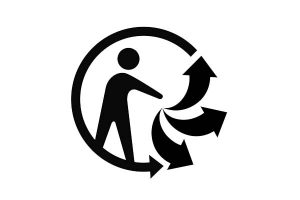GIS: Generating insights in sustainability
Valpak Sustainability analyst, Michael Wetherill, explains how GIS turns complex spatial data into clear, practical insights for teams tackling recycling, logistics and climate challenges.
Read MoreIn line with Article 17 of the Anti-Waste Law and the most recent publication of Decree no. 2021-835 on the 29 June relating to consumer sorting information on products subject to Extended Producer Responsibility (EPR), Valpak’s International Compliance Manager, Laura Rimmer takes you through the latest updates on labelling from France.

The Anti-Waste Law lays down the aim to implement a harmonised and compulsory marking system for each product submitted to EPR legislation in France. The markings will also need to be included on household packaging and printed papers. Information on sorting must also be accompanied by the TRIMAN logo. The markings themselves can either be printed directly on to the packaging or paper product or affixed as a sticker.
The planned timeline includes an entry into force of the new obligations from 1 January 2022, but no later than 12 months after the approval date of the new markings by the public authorities.
For example, if the authorities approve the new markings on the 30 November 2021, companies will have until 30 November 2022 to adopt the new symbols.
Companies will have an additional 6 months to run down products imported or manufactured before the 12-month period following the approval of the markings.
For example, if the authorities approve the new markings on 30 November 2021, companies will have until 30 May 2023 to sell down stocks.
Once submitted to the public authorities, they have a period of 2 months to approve the markings, and once validated by the two ministries, the graphics and relevant information will be made available to companies.
A marking exemption will apply to glass beverage packaging.
Dematerialising or displaying the sorting information and the TRIMAN logo on a website will be allowed if the surface of the largest side of the product or its packaging is less than 10cm2 and no accompanying documentation is provided with the product.
Dematerialising or displaying the sorting information on a website will be allowed if the surface area of the largest side of the product or its packaging is between 10 and 20cm2. However, printing of the TRIMAN logo will remain on the product itself or its packaging.
If your business is affected by environmental legislation overseas, we will remove the administrative and resource intensive burden of complying and have a range of services that can be tailored to suit your business’s needs.
To find out more about international environmental legislation and how we can help please call us on 03450 682 572 or complete our online enquiry form.